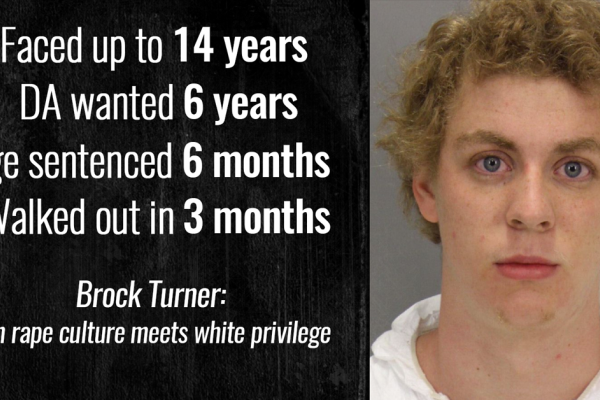Brock Turner was released from prison on Sept. 2, 2016, three months into his six-month sentence for three counts of sexual assault.
Turner assaulted an unconscious woman in early 2015 and was convicted in March 2016. His case gained notoriety for the justice system’s lenient treatment of his case — from a shockingly brief prison sentence to his even earlier release — as well as the privileged language around Turner, including his father saying any jail time was a “steep price to pay for 20 minutes of action” and the media’s frequent mention of Turner as an athlete at Stanford while declining to use a mug shot.
His case has been a stunning, if not unusual, example of white male privilege. Rape is incredibly hard to prosecute, thanks to wide variance among states as to the definition of rape, reluctance to report and convict accused rapists, and social pressure that shames or silences rape victims.
But even for the sexual assaults that are brought to trial, Turner’s stands out as white privilege. In 2016, Asian American college freshman Kyle Vo faced very similar charges to Turner’s, and was given six years in prison. 19-year-old Cory Batey, a black college freshmen, faced three counts of sexual assault and received a mandatory minimum sentence of 15 to 25 years.
And the same judge in Turner’s case — who limited Turner’s sentencing to six months, out of concern that a longer term would have a “severe impact” on Turner’s future — issued a prison sentence of three years to Raul Ramirez, a Latino immigrant with an otherwise strikingly similar case.
But today, Turner walked free.
Got something to say about what you're reading? We value your feedback!
